GROW BIGGER EARS #8: The ONE "Audio Autopsy" Power Pop Playlist
One plus one equals seven...at least, in THIS salute to the only positive integer that matters! A somewhat bloated "Audio Autopsy" Power Pop Playlist...it's how the west was ONE!
What usually is a 5-song Playlist somehow balloons to a 7-songer! Numbers…wacky, right? So, just as it is with cookies🍪, there’s always one more…and, just one more!
As always, our “Audio Autopsy” (with mini-deep dives into songs/artists) Power Pop Playlist is neither a ranking of any sort (despite the tempting presence of that pesky initial titular digit), nor all literally “power pop.”
All are songs I knew and loved at the time of release, and received little to no airplay or sales at the time, or are just hits too bitchin’ to ignore (and all filtered through my power pop-infused sensibilities, of course)!
“One,” Johnny Farnham, 1969, EMI Records/Australia
John Farnham, as he came to be known as he grew older, is an incredible Aussie singer with a tremendously powerful tenor voice. Here, at 20 years old, he covers Harry Nilsson’s famous “One,” covered, most notably, by Three Dog Night in 1969.
Following Harry’s original July 1968 recording, Farnham was the fourth artist to cover “One,” exactly a year after Nilsson’s. I first came to hear of Farnham in 2007-08, in the seventh season of American Idol.
David Archuleta (did someone say, “powerful tenor voice”?) actually pulled out a Farnham song (“You’re the Voice”) that not only wowed the judges (Randy, Paula, Simon), but stumped them completely! I think it was Randy Jackson who briefly acknowledged a passing knowledge of Farnham!
“Once in a While,” Cliff Richard, 1981, EMI Records
This one’s all Alan Tarney: He wrote and produced it for Richard’s 1981 Wired For Sound album. At some point, I came to grab everything Tarney’s name was on, either as songwriter, producer, or both.
“Once in a While” is a subtle, smooth, and catchy pop number that, for me, shows off all of Tarney’s strengths: Beautiful song that begs to be played again, crystal-clear production, with tasty playing from all involved, and of course, Richard’s earnest, yet restrained performance.
And, Alan, that wicked guitar “sting” just as the chorus enters!
In the mid-’70s, Tarney (a singer, guitarist, keyboardist, and bassist) was a member of Richard’s backing band, The Shadows, before joining forces with Trevor Spencer, and emerging as the Tarney/Spencer Band.
They recorded an album for A&M Records in 1976 (self-titled), having signed an astounding 10-album deal. After three albums met with dismal sales, the band and label mutually abandoned the contract.
I started paying closer attention to Tarney’s (pictured above) musical impact on their third album, 1979’s Run For Your Life (and attendant single, “No Time to Lose).” It was produced by David Kershenbaum, who produced FRONT ROW & BACKSTAGE’s Stephen Michael Schwartz’s 1974 debut RCA album!
Tarney’s production work on A-ha’s “Take On Me” in 1985 got everyone else’s attention, as it topped the U.S. singles charts, amid the innovative video’s heavy rotation on MTV.
Tarney went on to produce albums by The Hollies, Bow Wow Wow, the Dream Academy, Squeeze, Matthew Sweet, and…..this guy:
Also in ‘85, Tarney produced David Cassidy’s Romance album (above…his first for Arista Records/UK, and not released stateside), which included the UK Top Ten hit, “The Last Kiss,” co-written by Raymond Hoskins and Cassidy.
Once in a while, I’ll wonder how and why Tarney missed the opportunity to convince David to tackle “Once in a While” for his Romance disc. A perfect match, methinks.
“The Last Kiss” (#6 on the UK singles chart, with songwriting credits to Tarney and Cassidy), interestingly enough, had previously been written for Cliff Richard for his Wired for Sound album (from whence “Once in a While” emanates).
The Cliff Richard version however, contained different lyrics and was titled “Young Love” (credited to Tarney).
Related:
“10538 Overture (2012 40thAnniversary Version)” Electric Light Orchestra, 1972, Harvest/EMI Records (UK), United Artists Records (US)
Both Roy Wood and Jeff Lynne sang and produced the original single. The song is about an escaped prisoner, according to the song’s Wiki entry. Lynne wanted to give the character in the song a number, as opposed to a name, and he chanced upon the number 1053 while looking at the studio’s mixing console.
Wood suggested adding an “8” to fit the melody better. Although intended to be a song for The Move (ELO’s previous iteration after The Idle Race), after cello parts were added, it became the Electric Light Orchestra’s first vinyl release.
It was during the single’s chart run that Wood left ELO, emerging later in the year with a new band called Wizzard (Wood also recorded solo at this time, early- to mid-’70s), about whom much more needs to be heard and written. FR&B will get right on it!
“1984,” David Bowie, 1974, RCA Records
Written in 1973, “1984” was a highlight of Bowie’s Diamond Dogs 1974 LP. But, if you were alive and watching late-night TV on a particular Friday night in December ‘73, you likely saw this eye-popping appearance by Bowie on the appointment-worthy concert show, Midnight Special (“1984/Dodo” opened the show):
“A Million Miles Away,” The Plimsouls, 1983, (original recording, Geffen)
Originally released in 1982 on their Shaky City imprint on Greg Shaw’s Bomp! Records, “A Million Miles Away” (produced by Jeff Eyrich) showed up the following year on The Plimsouls’ 1983 Everywhere at Once album on Geffen Records (their second; their first, in ‘81, was on Planet).
The Plimsouls included singer/guitarist/songwriter, Peter Case (shown above, second from left), whose previous band, The Nerves (along with Blondie and Def Leppard), were featured on a recent “Hanging on the Telephone” edition of FR&B’s “Inside Tracks,” accessible here.
This live version of the song was recorded at The Golden Bear in Huntington Beach in 1983, released in 2012. The guitars sound like a victorious marching army, and very up-front, more so than I thought possible on a song whose studio recording is next to sonically flawless.
“One Way or Another (Teenage Kicks),” One Direction, 2013, Syco Music (originally founded by the aforementioned Simon Cowell)
English-Irish boy band, One Direction (with Harry Styles, second from left in both pix above), covered “One Way or Another” as a charity single for Comic Relief in 2013, merging the Blondie hit, “One Way or Another” (written by Debbie Harry and band-mate, Nigel Harrison) with Irish pop-punkers, The Undertones’ “Teenage Kicks” (written by John O’Neill).
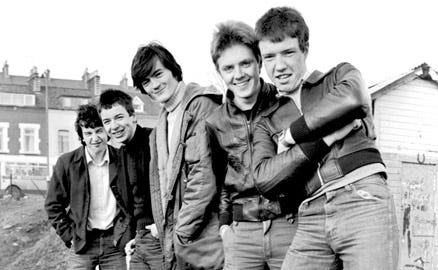
Blondie’s lead singer, Debbie Harry, was reportedly stalked in the early 1970s, and the experience served as lyrical inspiration for “One Way or Another.” Guitarist Jimmy Destri and bassist Nigel Harrison collaborated on the song that is heavily influenced by the Ventures.
Dig a little deeper?
“One Voice,” Barry Manilow, 1982, Live in London (Royal Albert Hall), Arista Records
As Barry has done many times, a Manilow finale: “One Voice,” recorded live in ‘82 at London’s Royal Albert Hall. If you’ve not hopped on the Fanilow bandwagon, know that he excels in arranging (and holding up our favorite Playlist number, above), and with full orchestra and chorus backing him here, the result is chillingly goosebump-raising. Plus, if you’re a singer, even more challenging fun!

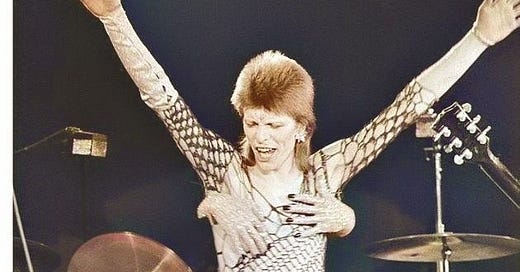


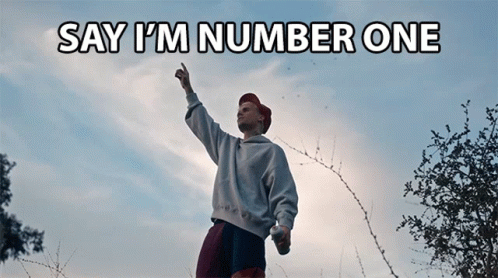
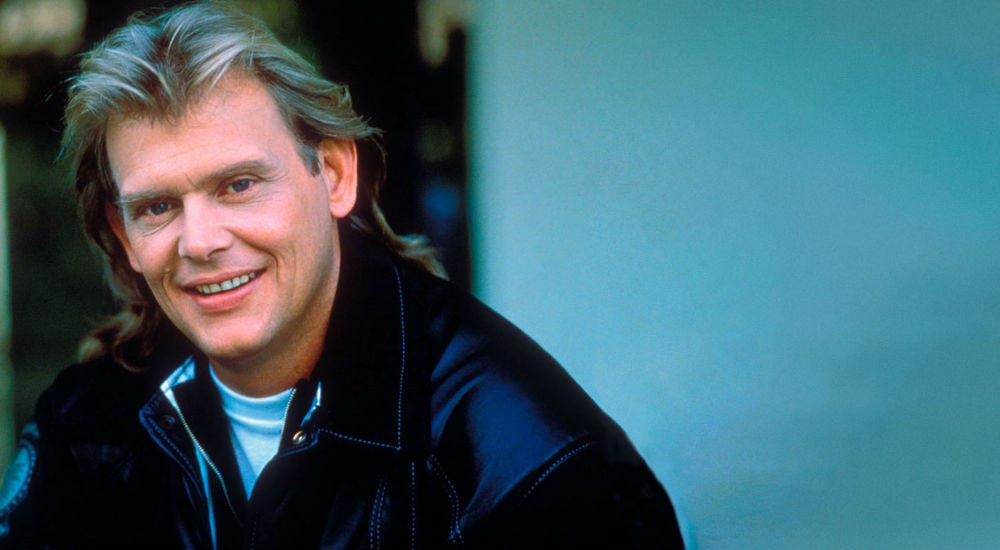
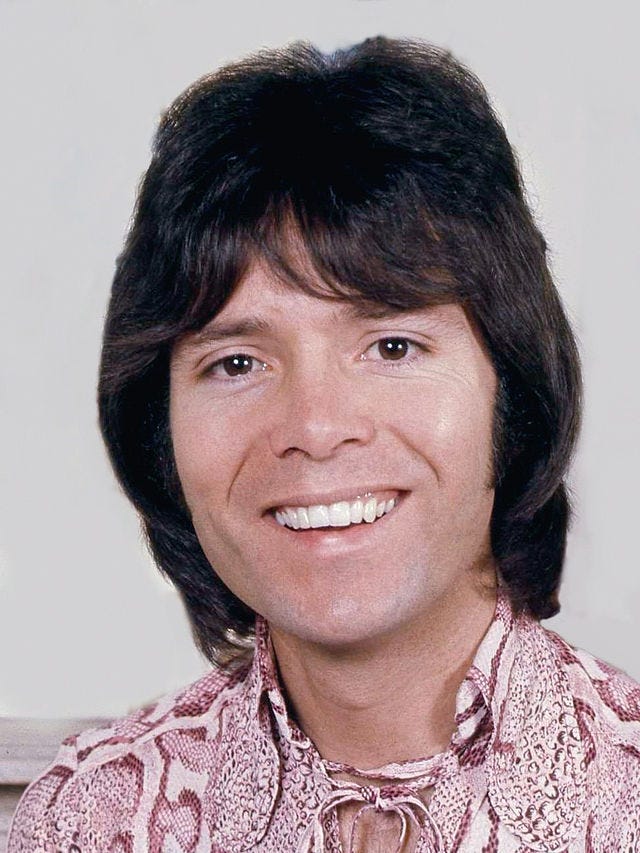
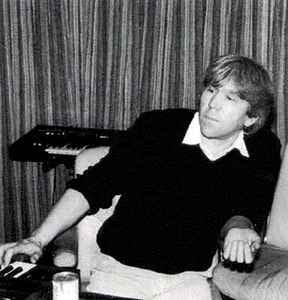
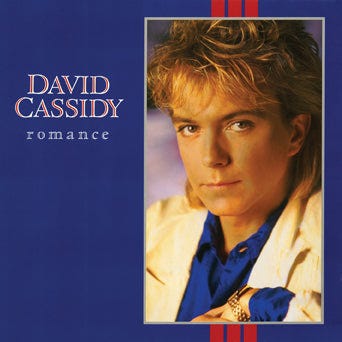
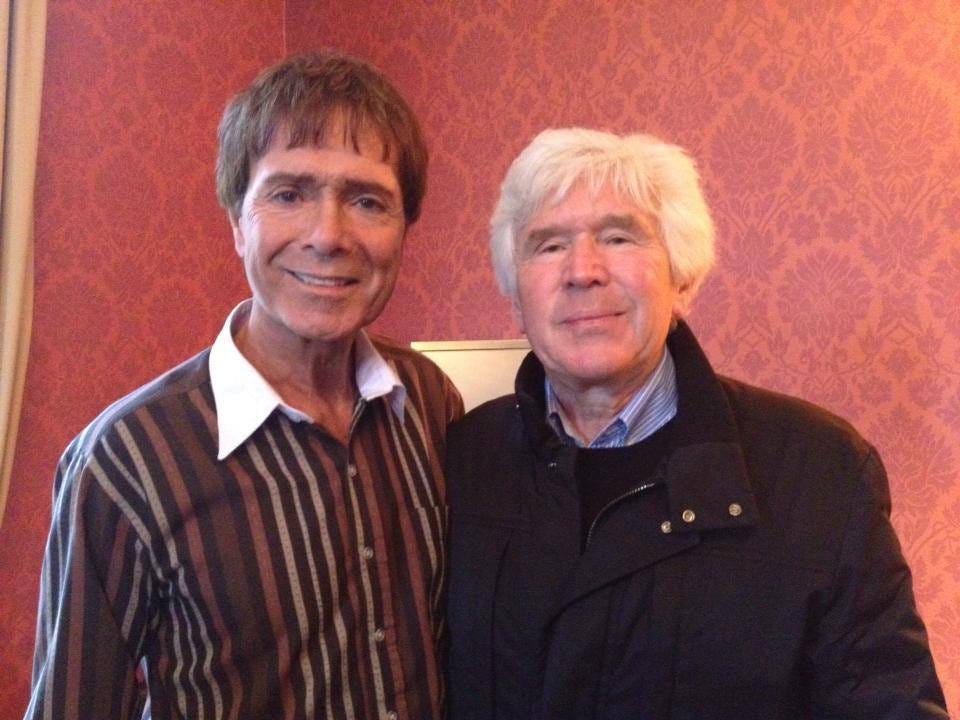
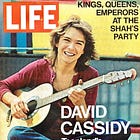
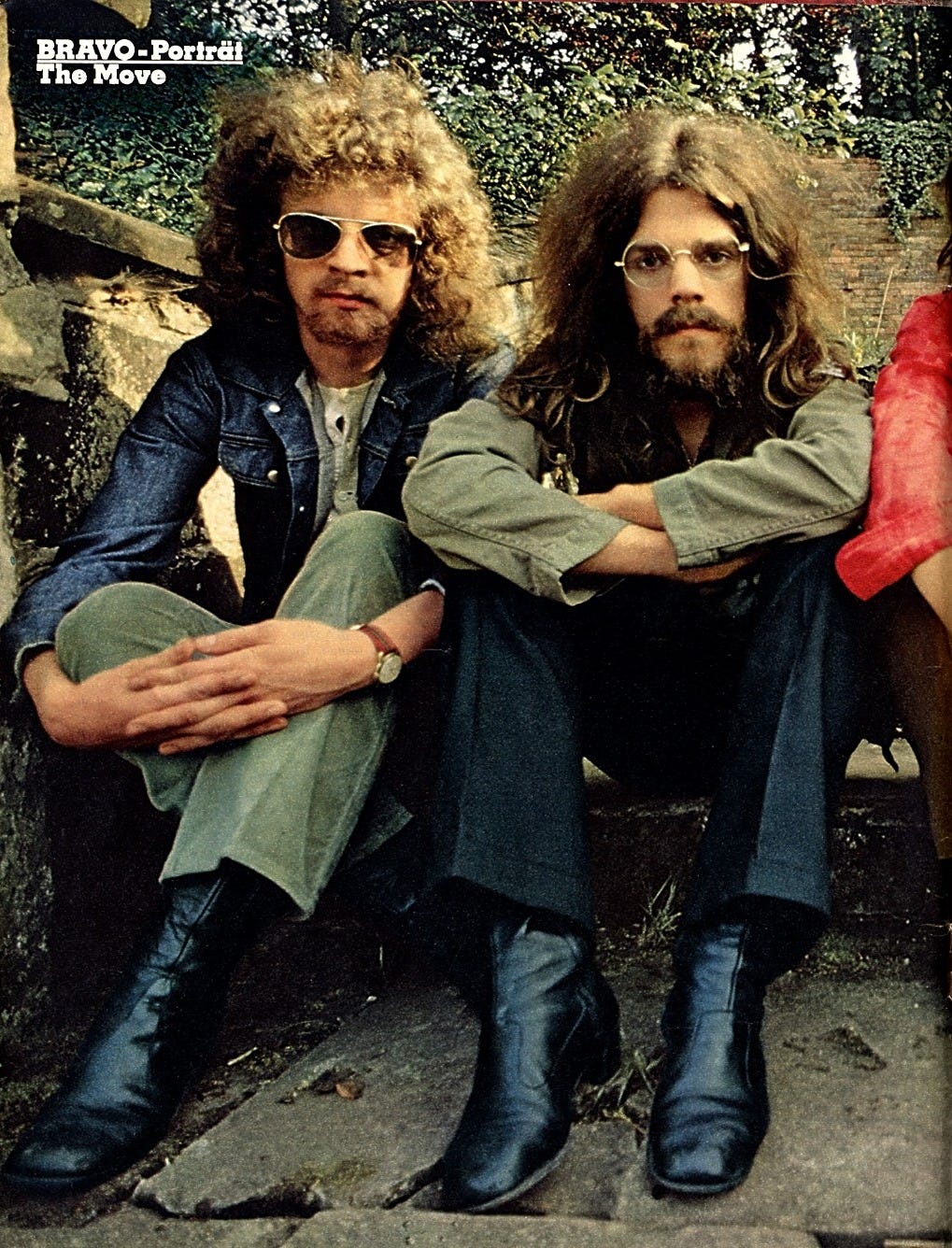

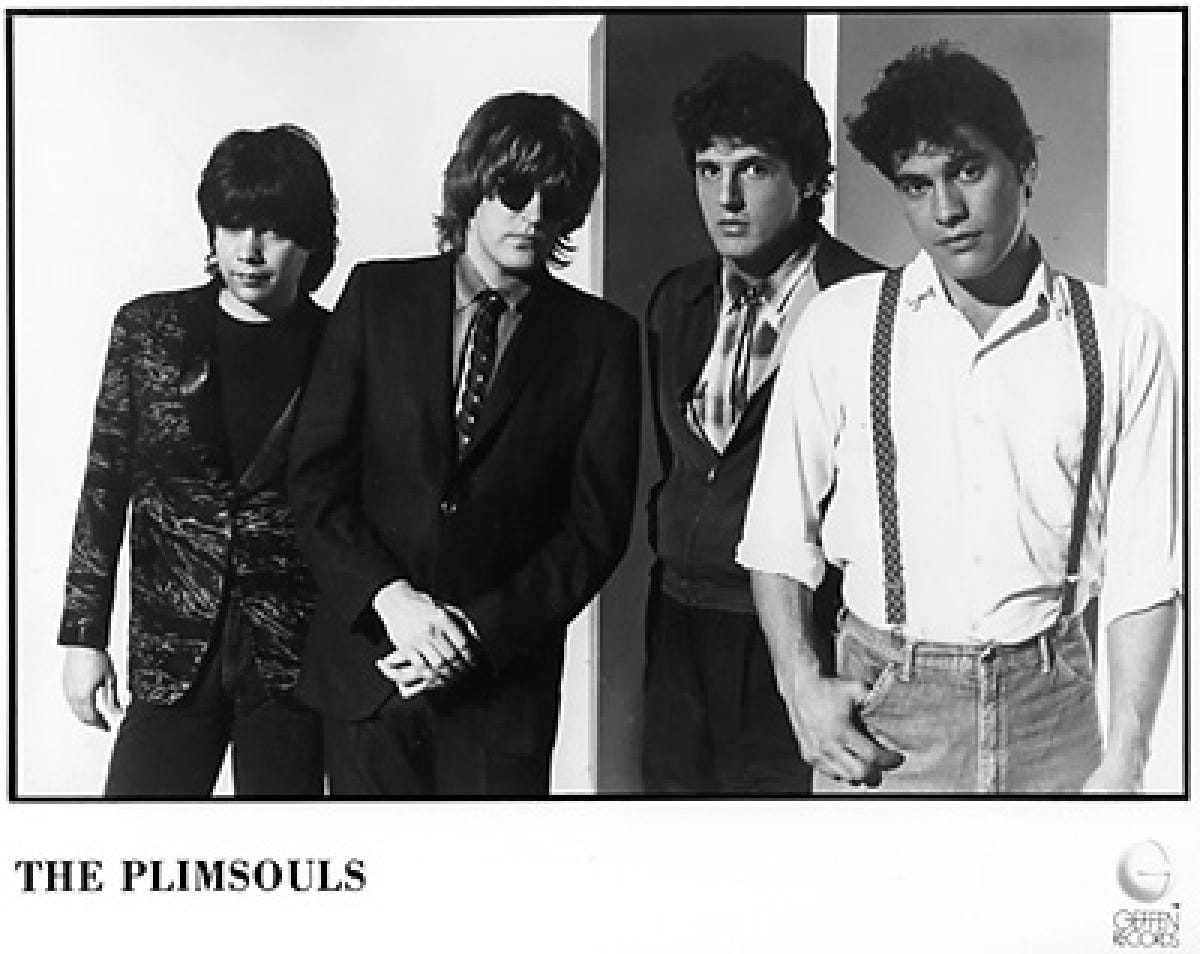


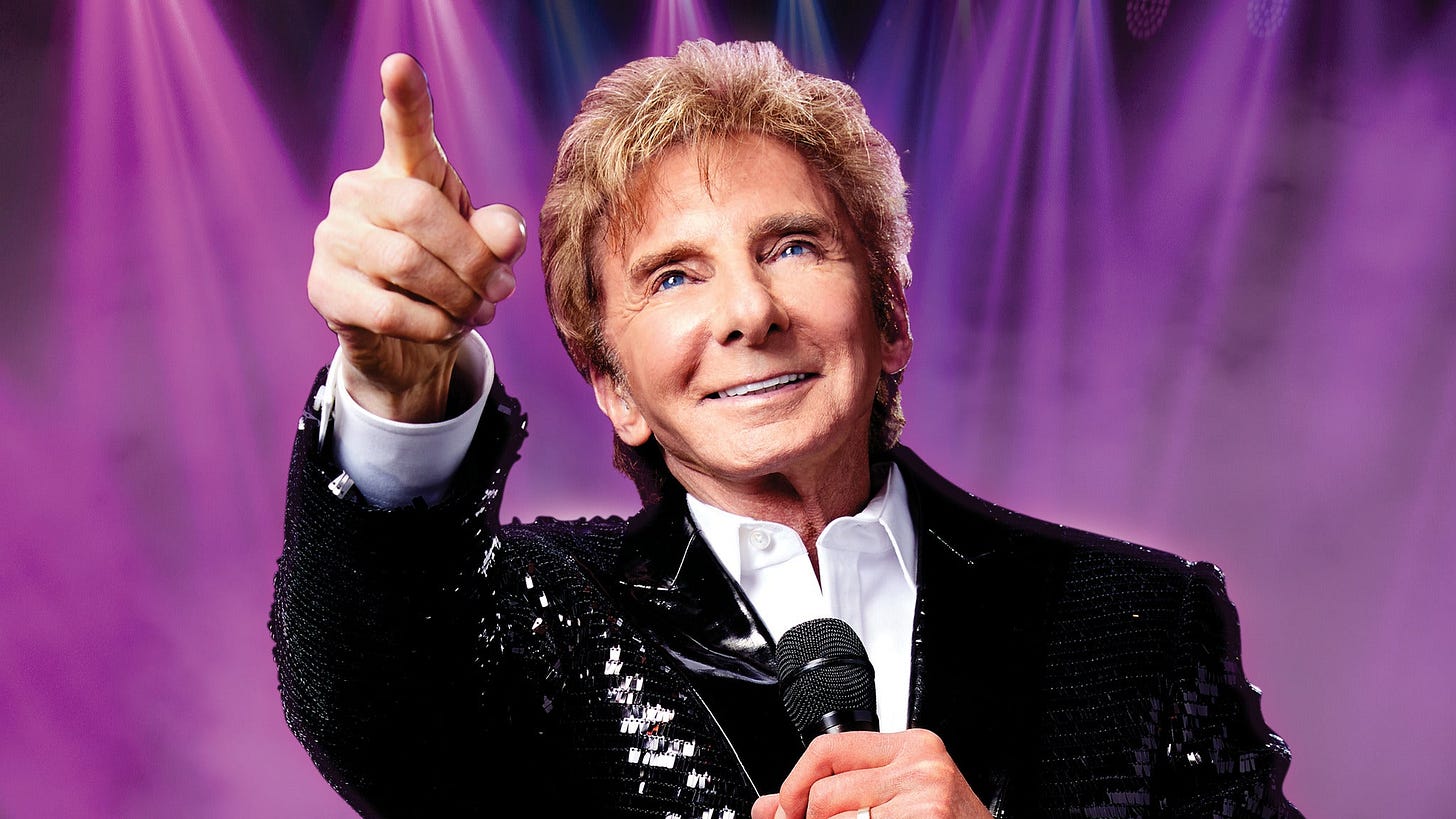


I see you're taking liberties with your "songs with 1 in the title." :)
I personally love Aimee Mann's version of "One" --- and now I'm thinking that this song for sure needs the "Inside Tracks" treatment. It's a song that is impossible to pick just one best version of.
I think this might be the first time I've (knowingly) heard a Cliff Richard song that wasn't "We Don't Talk Anymore."
And you /know/ how I feel about the Plimsouls!